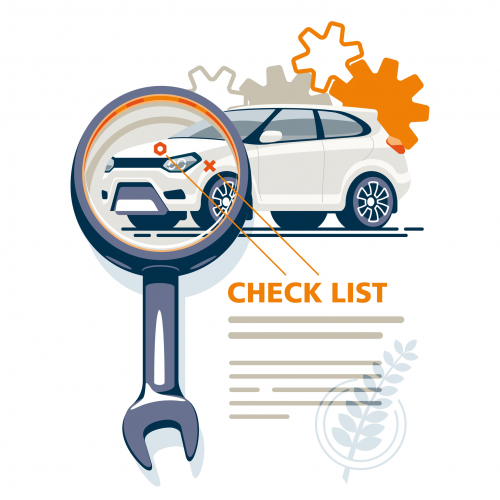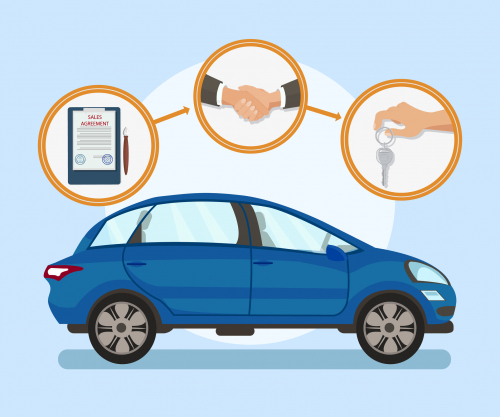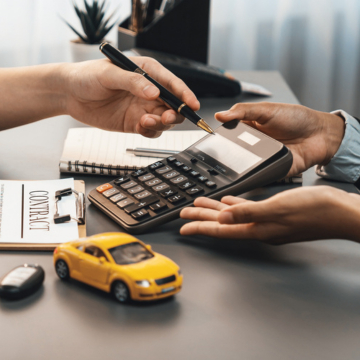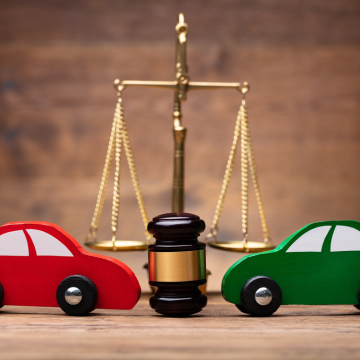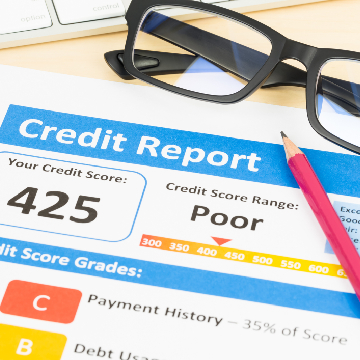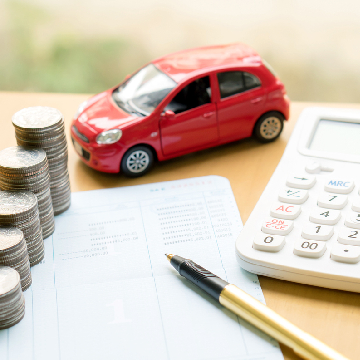Checking up on your car every week is vehicle maintenance 101 and helps you to stay on top of its condition. While an annual service or checkup every 15,000km will keep you informed of the general health of your vehicle, inspecting your ride on a weekly basis means you can take care of the little problems before they become bigger issues.
Running a weekly car checkup on your car is always a good idea, but where do you start, and which parts of your vehicle are most important? Weekly car checkups are quick, easy to do and are a great way to get ahead of any problems or issues.
In this post, we touch on the car inspection basics, looking at what you need to keep an eye on and what to do when you spot something that raises a red flag. These quickfire car checks can be done any time and won’t take more than ten minutes to complete.
Let’s get checking!
Basic vehicle maintenance
Like visiting the dentist or heading to the doctor every now and again, creating a car inspection routine for your car to monitor its health is important. When we ignore or can’t see emerging problems, they can quickly grow into bigger ones, costing us more to fix in the long run or even shortening the life of our vehicles.
Basic vehicle maintenance is a must for anyone looking to get the most value from their car. It ensures that you have a good understanding of what is happening, both under the bonnet and everywhere else and allows you to get ahead of any developing issues.
Weekly car checklist
Here’s a quickfire weekly car checkup checklist you can use to make sure that your car is in working order.
WHEELS: Tyres, Rims, Shocks
The wheels are the only part of the car in contact with the road, so you need to include them as part of your car inspection. They are also the part of the car that suffers the most wear and tear. Tyres will eventually lose their grip as their rubber wears away, and damaged rims can present a serious safety hazard, as do old or compromised shocks.
Car Checks: Inspect the walls of your tyres and their surface and make sure your tyre pressures are stable and that the valves aren’t leaking. Check that your tread is deep enough and ensure all valve caps are in place. Look at your rims and note any cracks, major bends or dents as part of your vehicle maintenance routine. Shocks can be tested by bouncing the car with your hands to see if the body rebounds quickly and stably.
What to do: Punctured tyres should be repaired or replaced immediately. Bent or damaged rims can be fixed, but those cracked or severely compromised must be replaced. Shocks are critical to braking and stability, so any broken or damaged ones must be replaced. Here's how to take care of your tyres.
FLUID LEVELS: Oil, Water, Wiper Fluid
Fluid levels are easy to check and replace when they’re running low. It is always recommended that you keep your essential vehicle fluids topped up and not wait for them to run out completely. Water and coolant prevent your car from overheating and are needed to mix with fuel. Engine oil is a vital lubricant that keeps your engine running smoothly, and transmission and brake fluid should also be part of your weekly car checkup.
Car Checks: The first indicator of low fluid levels will be the warning lights on your dashboard. When these light up, stop and check your levels immediately. This can be done by opening the bonnet and visually inspecting how much you have left.
What to do: Turn off the engine, open your bonnet and unscrew the relevant water, wiper or oil caps. Be very careful, as these may still be hot and can seriously burn your hand. Always wait for your car to cool down first. Top up your water levels (you can also add coolant here) and add oil until the dipstick indicates you have enough.
ELECTRONICS: Dash, Headlights, Indicators, Brake Lights, Reverse Lights, Battery
Most people don’t realise it when a headlight, indicator or brake light globe stops working. After all, you’re inside the car and can’t always see them. This can lead to accidents and can get you into trouble with the law. Aside from your exterior lights, the electronics inside your car are also important to vehicle maintenance. Your battery is the beating heart of your car and must always be in good working order.
Car Checks: Check your car battery for any leaking fluid, buildup or rust. If you’re having battery issues, ask someone to test its voltage. Test your headlights, indicators and brake lights every week by asking someone to stand outside your car as you switch each one on and off. Test your interior cabin light and look at your car’s user manual (you can find them online if you don’t have one) to see which dashboard indicators should illuminate when operating your car. Make notes of any electronics that are faulty or not working at all.
What to do: Batteries must be kept clean at all times. Disconnect your battery and clean each node one at a time. Be careful not to touch both, or you’ll get a painful jolt. Faulty batteries can either be supercharged or must be replaced. You can replace blown globes and even faulty fuses (on older cars) yourself. All you need is a screwdriver and a little know-how. However, be very careful not to get electrocuted and rather ask a professional to do it for you if you’re unsure.
BODY: Paint chips, Dents, Scratches
Anyone living on the coast will tell you how quickly rust can spread if not dealt with fast. Even the smallest chip or deep scratch can expose the delicate aluminium body to the elements, causing damage and compromising your car’s integrity. The sooner you repair dings, dents and scratches, the more you’ll be able to limit any resulting damage.
Car Checks: Carefully inspect the car’s exterior, from top to bottom, front to back, noting any fresh scratches or dents in the paintwork. The majority of this damage happens without you knowing about it, so don’t be surprised if you spot more than you think. Keep a “map” of your car’s outline and note any new damage each week during your car inspection.
What to do: Try to buff out any scratches or marks using water and soap to see if they are superficial. If they can’t be rubbed off, look closely and run your finger over them to determine how deep or serious they are. You can take your car to body shops to fix any small chips or dings for a relatively affordable price. This is a vehicle maintenance must-do.
GLASS: Chips, Cracks, Windows working
Your windscreen and windows aren’t just there for you to look out of. They protect you from the elements, wind and dust while driving and can even save your life in an accident. But damaged or cracked glass can also pose a serious hazard to the people in the car, and a damaged windscreen can compromise the driver’s vision.
Car Checks: Examine each window and the windscreen one by one as part of your weekly car checkup. Look for small chips and cracks along the edges and ensure that the glass is secure and straight. Inspect the rubber or plastic seals and make notes of any damage or stresses. Check that all your windows can open and close properly, and don’t forget that even the smallest chip can shatter the glass.
What to do: If your windscreen gets cracked while driving, mark the point where the crack ends with makeup or lip balm. If the crack grows past this mark, you know it is serious and will likely continue to grow as you drive. Specialists can repair chips using special glue, but cracked windows or a broken windscreen must be replaced.
SAFETY: Seatbelts, Wipers, Door locks
Car safety is probably the most important vehicle maintenance element to check weekly during your car inspection. In the event of an accident, your car’s safety systems are the only thing keeping you safe and alive. While airbags must be checked by qualified specialists, you can still check in on the basic safety features yourself every week.
Car Checks: Start with the seatbelts. Give each one a quick pull to make sure the locking mechanisms are working correctly, and check to ensure buckles are clear and clean. A fast tug should stop the belt immediately. Next, inspect your wipers for any splits or cracks in the rubber, and make sure they are fastened correctly to the car. Check that your door locks work by locking the car and trying to open your doors from the outside. Don’t forget to ensure that you can exit the vehicle when doors are unlocked, too.
What to do: When it comes to faulty seatbelts, don’t compromise. At the very least, check clips and buckles for any foreign objects or dirt. Brocken clips, buckles and frayed, torn, or worn belts must be replaced immediately. You can purchase replacement wiper blades and fit them yourself, but make sure you know what you’re doing – or ask a professional to do it for you. For added safety, when transporting children, activate the child locks and follow instructions relating to child car seats.
Conclusion – A healthy, serviced car is a happy car
Weekly car checks help you to identify any emerging problems and to deal with them quickly. Once you know what the issues are, you can either fix them yourself or, for the bigger, more complex ones, you can pay a visit to your lock car specialist.
But to ensure that your car is in top working order is 100% safe, and won’t let you down, visit an Auto Pedigree service centre near you. The experts working there are qualified and trained not only to spot issues but to correctly fix them, too.
Keep your car healthy, stay on top of vehicle maintenance and pay attention to it. Conduct a weekly car checkup and visit one of Auto Pedigree’s service centres when it’s time for a more complete checkup. Our services are thorough and cover an extensive list of items your weekly checkup will likely miss. Our service centre professionals are experts at paying attention to detail and will leave you with the peace of mind of knowing your car is working in optimal condition and that nothing is going unnoticed.
Stay on top of your car’s overall condition by taking a little time every week to check up on it. Because a healthy, checked and serviced car is a happy, safe and reliable one.
References & Resources
Link References:
https://www.toyota.com/car-tips/basic-car-maintenance-tips-services-checklist/
https://www.michelinman.com/auto/auto-tips-and-advice/tire-maintenance/visual-inspection
https://www.autopedigree.co.za/used-car-guide/how-to-take-good-care-of-your-tyres/239
https://www.popularmechanics.com/cars/a25986/check-fluids-oil-car/
https://www.wikihow.com/Check-a-Car-Battery
https://www.popularmechanics.com/cars/how-to/g173/how-to-fix-a-car-paint-scratch/
https://www.phoenixseating.com/news/52-5-seat-belt-safety-checks
https://www.autozone.com/diy/wipers/how-to-check-and-change-wiper-blades
https://www.autopedigree.co.za/service-centres
General References:
https://www.bridgestonetire.com/learn/maintenance/ultimate-car-maintenance-checklist/
https://www.shell.com/business-customers/shell-fleet-solutions/health-security-safety-and-the-environment/prevention-not-cure.html





